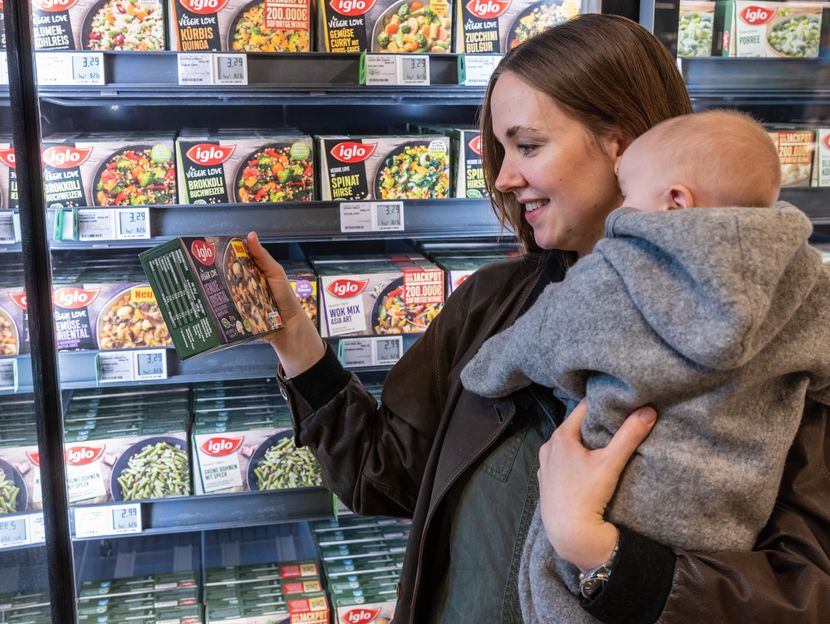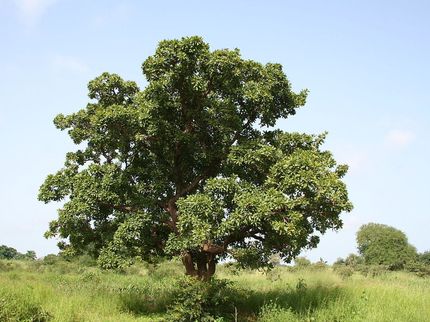IGW 2023: iglo focuses on 'Fossil Free' and appeals for more use of renewable raw materials
The future is(s) plant-based - also with regard to packaging materials
Advertisement
Almost everyone buys them: food packaged in plastic packaging. Even if, at least in Germany, these end up in the yellow garbage can after consumption, this is becoming increasingly difficult in view of distressing television images of huge plastic islands that are swaying in the waves in the world's oceans and off the beaches of all continents. iglo wants to draw more attention to plant-based packaging alternatives and their advantages in terms of CO2 storage. Therefore, on the occasion of the ongoing International Green Week (IGW 2023), the company is appealing for more use of renewable raw materials in food packaging and beyond.

iglo relies on renewable packaging materials
iglo Deutschland
PROVIDING: Renewable raw material instead of petroleum-based resources.
iglo has already been doing without fossil materials as far as possible in its products since 2015 and avoids petroleum-based plastic packaging wherever possible. Instead, around 95 percent of iglo products are already packaged in paper-based cardboard boxes that can be disposed of in waste paper and remain in the cycle as a raw material. The remaining pouch solutions for ready meals are also to be successively converted to renewable raw materials in the future.
Circular economy - nutritional change as a holistic approach
"The nutritional change," says Philipp Kluck, CEO of iglo Germany, "is understood by iglo as a comprehensive, holistic approach. We appeal to all manufacturers to push the use of plant-based, i.e. renewable raw materials. In particular, the aspect of CO2 storage by plants is still given too little consideration and should make us all think again."
Currently, an increased plant-based diet is being discussed in the climate debate and is finding more and more fans. But according to Philipp Kluck, whose company offers consumers vegan and vegetarian products with its Green Cuisine or Veggie Love sub-brands, this makes up only a single component. Equally important, is the resource factor. In the spirit of the circular economy, the aim is to obtain and use resources in the best possible way and to preserve them in the long term or return them to the economic cycle. In addition to sustainable procurement and regional cultivation of product ingredients, this also applies to packaging materials. Unlike plastic, cardboard, paper and other plant-based materials such as grass and straw are renewable raw materials that can either be recycled or are biodegradable and remain part of the cycle.
Plants are CO2-neutral raw materials and help to avoid the use of fossil materials.
A previously underestimated aspect in the materials debate is the CO2 conversion and storage capabilities of plant sources. In contrast to the use of fossil materials, trees, for example, sequester CO2. Trees absorb carbon dioxide (CO2) from the air. They need CO2 for their own growth. On average, one hectare of forest filters about 10 tons of carbon dioxide annually, and a tree is on average 47 percent pure carbon.
If we consider the entire life cycle of a tree, from seedling germination to complete decomposition of the dead wood, trees absorb the same amount of CO2 as they release. The same is true when the tree is cut down and its wood is burned to produce energy or for heating. Here, too, the tree absorbs the same amount of CO2 during growth as it releases through combustion. Wood is therefore also referred to as a CO2-neutral raw material or energy supplier. It saves other, fossil, fuels such as crude oil or natural gas - even in packaging. In this way, the forest helps to avoid CO2 emissions.
Renewable packaging materials pay off: sustainability as a relevant purchasing impulse
According to various surveys, around three quarters of all Germans pay attention to the sustainability of products when shopping (1). 73 percent of respondents in Germany also say they attach importance to sustainable packaging. Consumers consider packaging to be sustainable above all if it is biodegradable and made of recycled or recyclable materials. 70 percent name paper/cardboard as the most sustainable packaging material. 83 percent would even pay more money for sustainable packaging (2). So in addition to taste and a strong brand, factors such as sustainability and packaging material also play a decisive role in the purchase decision. Other studies even go one step further. New data has shown that 57 percent of consumers would be "less likely" to buy products in environmentally harmful packaging (3).
(1) https://ots.de/djmnmK.
(2) https://www.presseportal.de/pm/78805/4867381
(3) https://www.presseportal.de/pm/162723/5203231
Note: This article has been translated using a computer system without human intervention. LUMITOS offers these automatic translations to present a wider range of current news. Since this article has been translated with automatic translation, it is possible that it contains errors in vocabulary, syntax or grammar. The original article in German can be found here.
Other news from the department business & finance
Most read news
More news from our other portals
See the theme worlds for related content
Topic world Weighing
Precise weighing is critical in laboratory and industrial environments. From accurate dosing of chemicals for research experiments to mass production of products, precise weight determination is often the first and most critical step. Modern balances and weighing instruments are sophisticated, offer impressive precision and are resilient to external influences such as temperature and humidity.

Topic world Weighing
Precise weighing is critical in laboratory and industrial environments. From accurate dosing of chemicals for research experiments to mass production of products, precise weight determination is often the first and most critical step. Modern balances and weighing instruments are sophisticated, offer impressive precision and are resilient to external influences such as temperature and humidity.
































































